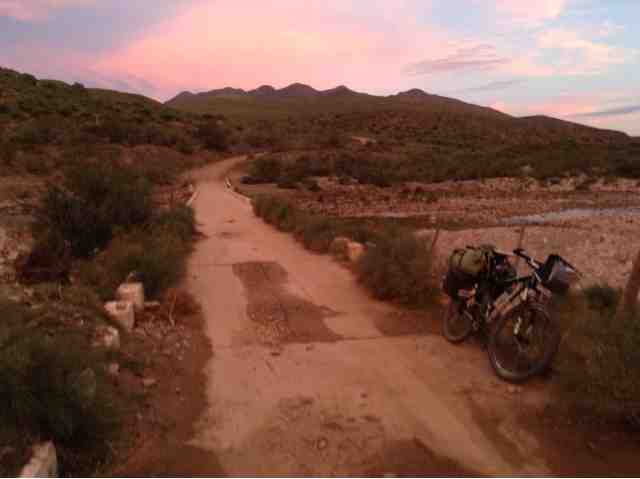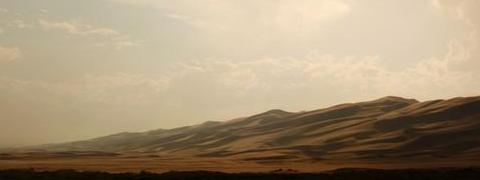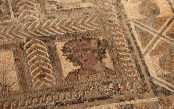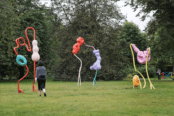I hate to start it with a quote, but when it’s Hemingway, you get a little leeway.
Hemingway once opined, about cycling:
It is by riding a bicycle that you learn the contours of a country best, since you have to sweat up the hills and coast down them. Thus you remember them as they actually are, while in a motor car only a high hill impresses you, and you have no such accurate remembrance of the country you have driven through as you gain by riding a bicycle.
He wasn’t half wrong. I’ve learned this lesson through some very intense experiences with this stunning Western Cape landscape.
In the previous five days of cycling, I have gone up and then down, or down and then up, two mountain and ten river passes. Eleven if you count the Gouritsrivier, which we really should, because it looks like this (right):
So what have I learned from these beautiful, but beastly, roads?
Well, for one, the two are not created equal. Even if they’re the same length and climb and descend the same distance, river passes are far preferable to mountain passes. I was due to stay with a host from Warm Showers who, I discovered after about ten kilometers, lived just off of “Seven Passes Road.”
Dear Lord, I’d just spent the last three days battling with Tradouw, Cloete’s, and du Plessis Passes on the back road from Barrydale to Herbertsdale. This would kill me.
Not at all, it turns out. It was actually one of the best days of riding I’d had yet. Unlike the mountain passes in the semi-desert of the Klein Karoo, the seven passes of the namesake road (actually eight: Black River, Kaaimansgat, Silver River, Touw River, Hoogekraal, Karatara, Homtini, and Phantom Pass) all dove down into valleys or gorges, completely shaded, cool, and wet. Moreover, they were amazing! Bombing down winding roads at 40 km/hr is just a ton of fun, and when you’re doing about 100km per day, a mental boost, having fun on the bike, is one of the best ways to power you through a ride.
[quote]even if you died, your body would just carry
on down the hill, strapped to the bike, flopping
about like some wacky, Weekend at Bernie’s set piece[/quote]
Mountain passes, on the other hand, give little indication of the terror that awaits. You hit the base of the pass, check the sign (Tradouw Pass – 14km), and start to climb. And climb. And CLIMB. AND HOLY FUCKING HELL WHEN WILL THIS EVER END?!
Okay, it looks like I’m almost, OH WHERE THE FUCK DID THAT COME FROM?!
Mountains hide mountains that hide even greater mountains. Worse, what seems like the end of the climb is often just a level stage that gives you just enough breathing room to curse your ancestors and all the stupidity that ever took you on this trip before HITTING YOU WITH ANOTHER MOUNTAIN.
When you’ve finally overcome the pass, and you’re on your way down, you’re too exhausted to really enjoy it. You’ve sweated it out, often under the full blaze of a noonday sun (I seem to be hitting mountain passes right in the middle of the day), and now you have this amazing view… and all you want to do is roll into the ditch and die.
But you can’t, because you’re clipped into the pedals, and you’ve still barely learned to unclip in high traffic areas. So even if you died, your body would just carry on down the hill, strapped to the bike, flopping about like some wacky, Weekend at Bernie’s set piece.
Where was I? Ah yes, passes.
The longer I’m on the bike, the more existential the ride seems to get. Hit a river pass, and everything is golden on the way down. Even when you hit the climb, the energy you’ve built up and the fun you’ve had make the challenge a lot more manageable. The difficulties faced as a result of a hard uphill climb, on the other hand, can strip you of your ability to truly enjoy the great things in life (like getting a wicked downhill ride).
So you have to attack the hills. Seriously, it’s the only way to get through it. Attack the most challenging parts that life (or landscape) throws your way, then pause to enjoy it once you’ve overcome it. Don’t forget to stop and take a look from the top, but then carry on.
You have many more miles to go.
Sidebar Image: Todd Quackenbush
Sterling Carter writes on the intersection of political economy, arts and culture, and human rights. He has over five years’ experience on African development, violence and conflict with organizations including Human Rights Watch, Global Witness, and Search for Common Ground. He is originally from Flora, Indiana but pulled up stakes long ago.




















